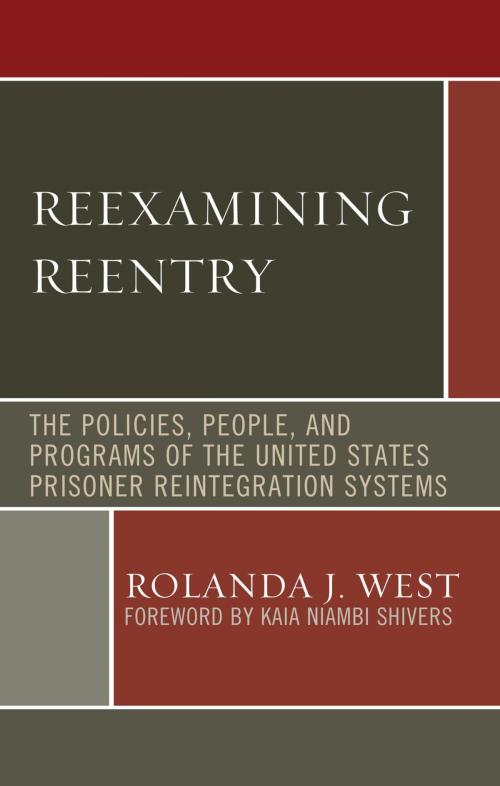Reexamining Reentry
The Policies, People, and Programs of the United States Prisoner Reintegration Systems
Nonfiction, Social & Cultural Studies, Social Science, Crimes & Criminals, Penology, Criminology| Author: | Rolanda J. West, Imani West-Abdallah | ISBN: | 9780739192030 |
| Publisher: | Lexington Books | Publication: | December 14, 2016 |
| Imprint: | Lexington Books | Language: | English |
| Author: | Rolanda J. West, Imani West-Abdallah |
| ISBN: | 9780739192030 |
| Publisher: | Lexington Books |
| Publication: | December 14, 2016 |
| Imprint: | Lexington Books |
| Language: | English |
Reexamining Reentry takes an in-depth look at how and why prisoner reentry programs are developed. Furthermore, this book explains how having access to these programs, or not, could potentially stymie the community reintegration of the formerly incarcerated. All too often we see the pervasive criminalization of the formerly incarcerated even after serving their sentences and being released into the general public. What makes this text different from many others that focus on prisoner reentry is the focus on empowerment strategies for the participant of the program rather than the deficits experienced by prison populations while attempting to transition. This book will show how the policies, social labeling and discrimination, trauma experienced prior to and during incarceration, as well as media interpretation of the population prior to incarceration all work together to further criminalize populations that have paid their respective debts to society.
Reexamining Reentry takes an in-depth look at how and why prisoner reentry programs are developed. Furthermore, this book explains how having access to these programs, or not, could potentially stymie the community reintegration of the formerly incarcerated. All too often we see the pervasive criminalization of the formerly incarcerated even after serving their sentences and being released into the general public. What makes this text different from many others that focus on prisoner reentry is the focus on empowerment strategies for the participant of the program rather than the deficits experienced by prison populations while attempting to transition. This book will show how the policies, social labeling and discrimination, trauma experienced prior to and during incarceration, as well as media interpretation of the population prior to incarceration all work together to further criminalize populations that have paid their respective debts to society.















